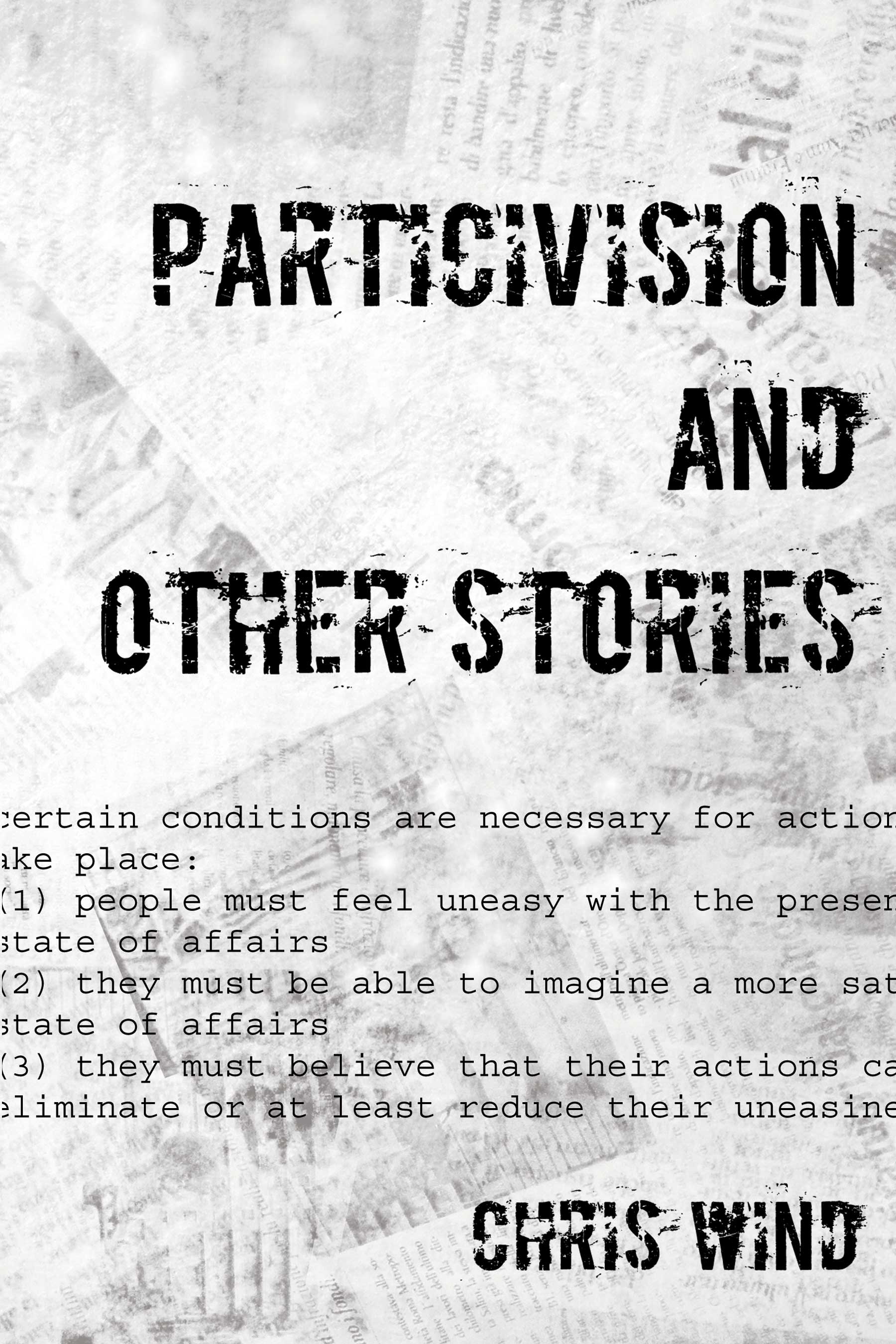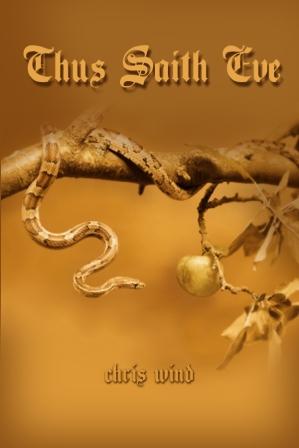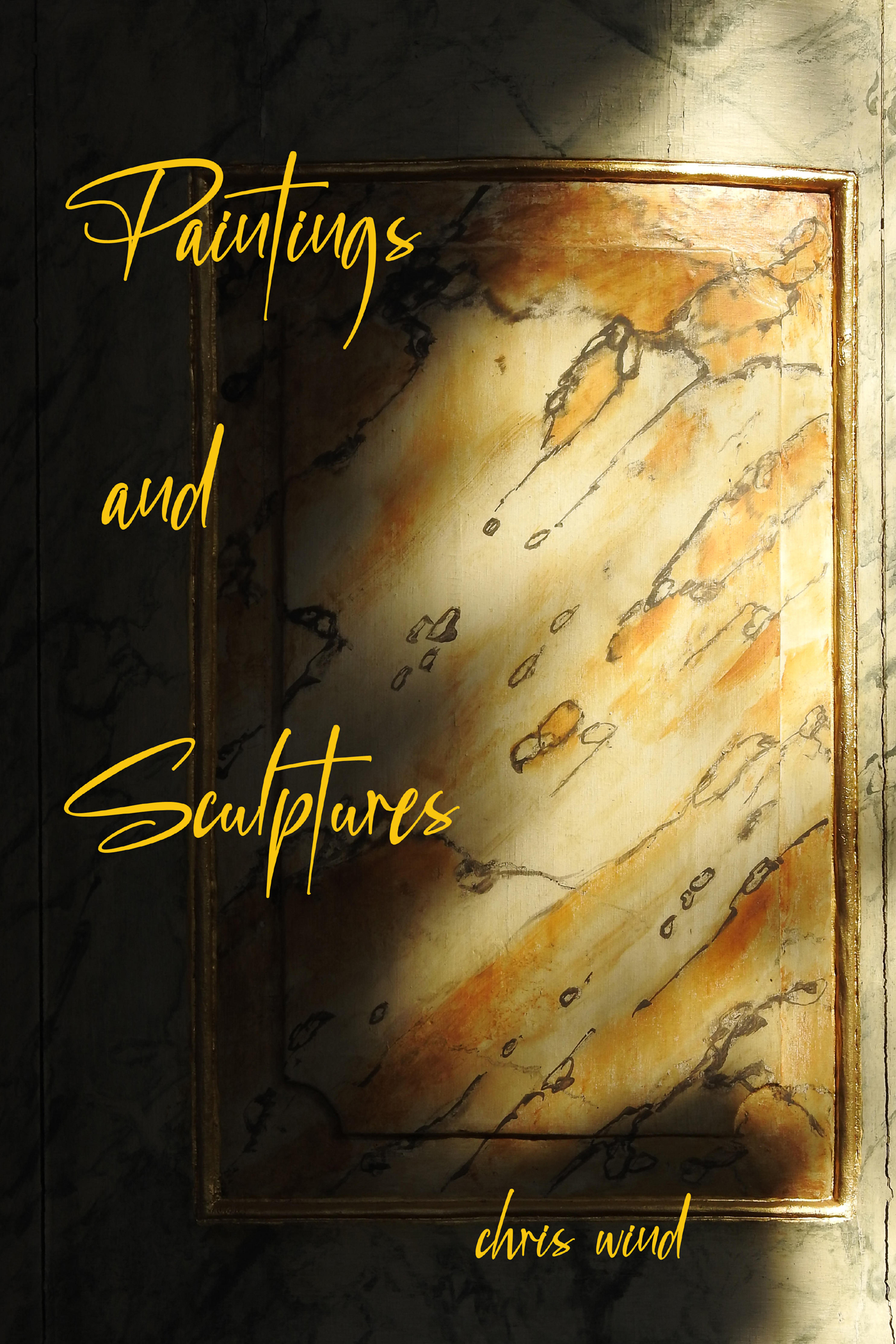Audition monologues for women
Soliloquies: the lady doth indeed protest, Deare Sister, Snow White Gets Her Say, and Thus Saith Eve contain fresh, new, original pieces that can be used for auditions. One piece from each collection follows.
from Soliloquies: the lady doth indeed protest, by chris wind – “Portia”
If I’m the one with the property
You’d think I’d be the buyer
Not the bought;
A lot of faith my father has in me:
He distrusts my ability to judge, to discriminate—
A decision made by chance,
A decision inevitably and ultimately irrational,
Is preferable to a decision made by me.
But no, you say,
The decision was not to be by chance
But choice, and thus reveal the suitor’s character—
That is, he who chose lead would be wise,
To forsake appearance, and realize its irrelevance;
True, but you forget the inscription:
To choose lead, to choose ‘to give and hazard all’
Is to my mind not wise,
For its foolish risk (all!);
Is it not better to choose silver,
And ‘get what one deserves’?
It seems to me a mature perspective;
So, to judge by appearance
(And thus forsake appearance)
Or to judge by words
—That is the choice.
Words have meaning,
And unless the words be false or deceiving,
Is it not better to judge according to content,
Than to judge according to form
To substance, rather than pretence?
So if it was to be a test of character,
’twas thus a poor test,
For who was to guess what my father intended:
The form did contradict the content;
And so choice becomes chance, after all.
That I am not allowed to choose
Is in principle, intolerable,
But in practice, just as well—
For there is really not a one worth choosing:
A prince who boasts of his precious Porsche
And can fix it himself;
The County Palatine, who believes
A real man never smiles;
Falconbridge, a pin-up boy
With a mind as two-dimensional;
A Scottish Lord interested in nothing
But a good fight;
An alcoholic (the duke’s nephew, yes);
The Prince of Morocco, a blood-thirsty Rambo;
And Bassanio, attracted by wealth and beauty,
Willing in a moment to sacrifice his wife for his friend.
There is not one.
If I so despise men,
Why did I disguise as one?
’twas not my choice:
Shakespeare (a man) created my costume
(And that of Viola and Rosalind),
And in his cowardice, he refused to challenge the reality
That to be able to interact
Without having to defend against
Sexual or romantic intentions,
One must be male;
That to be taken seriously,
And to be exempt from compliments that essentially trivialize
One must be male;
That to be effective at an endeavour
Of the intellectual arts,
One must be male;
That to be dominant, influential, powerful,
One must be male
In patterns of appearance, behaviour, speech, and thought
—Patterns of thought?
But didn’t I put forward
The feminine concept of mercy over justice?
Didn’t care and compassion win over fairness?
No, look again:
The Duke first pleaded for mercy, not I;
My case was won on a technicality,
On the letter of the law.
(Though it is worth mention
That recourse to such a legal loophole
Was my last resort.)
The masculist mode won out;
But this is not surprising in a masculist court.
Where there is no challenge,
There can be no change.
For when the disguise is finally revealed
It is not recognized
That to be what I was (what I am)
One can be female—
It is recognized only that I am female.
And their response concerns only themselves—
Relief, that they won’t be cuckolds.
*****
background: (Shakespeare’s The Merchant of Venice)
Portia’s father, now deceased, left explicit instructions in his will regarding her marriage. Only a suitor who passed the test of choosing ‘correctly’ among three caskets (of gold, silver, and lead) was to be accepted by Portia as her husband. Fortunately, the ones Portia would reject fail the test (my list is fairly true to Shakespeare’s), and the one she would choose, Bassanio, succeeds.
However, before the test and marriage, Bassanio had asked a friend of his, Antonio, to sign a loan for him, from Shylock; Antonio’s own flesh would be collateral (the loan was needed to woo and impress Portia, who, Bassanio was well aware, was “richly left,” I:ii, l.161). Antonio generously agrees to do so, but unfortunately all of his vessels are shipwrecked and he is unable to repay the loan; Shylock demands his flesh. Portia (now wife of Bassanio) offers to pay the loan, but Shylock remains firm in his claim. Bassanio leaves Portia to see what he can do for Antonio.
Believing Antonio to be as good a man as Bassanio (for they are friends), Portia disguises herself as a lawyer and appears at the court to plead for Antonio. Her lady, Nerissa (recently married to Gratiano, Bassanio’s man) accompanies her, disguised as a clerk. The trial proceeds, Portia speaking for Bassanio’s friend (in spite of Bassanio’s claim that he would give up his wife to save Antonio, IV:i, l.282-287), and delivering the famous speech about mercy (“The quality of mercy is not strained…” IV:i, l.184…). The Duke judges in Antonio’s favour. Portia begins to leave, but Bassanio insists the lawyer name some payment. She names the wedding ring he wears (given to him by her with the words “When you part from, lose, or give away, let it presage the ruin of your love,” III:ii, l.174-175); he is reluctant, but upon Antonio’s pleading (“Let his deservings and my love withal, be valued ’gainst your wife’s commandment,” IV:i, l.450-451), he gives it. Nerissa, as clerk, also acquires the ring she gave to Gratiano. They part.
When all have returned, Portia presents the ring to Bassanio, telling him that she obtained it when she slept with the lawyer. Nerissa claims to have slept with the clerk, and she too presents her ring. For a moment, there is concern about being cuckolded, but Portia quickly tells the whole story, thus relieving the men.
Viola (Twelfth Night) and Rosalind (As you Like It) are two other characters who temporarily disguise themselves as men in order to more freely, more effectively, interact in the world.
Preview or purchase ($2.99) the entire collection at smashwords.
As I the Shards Examine (the play) is available at www.stageplays.com.
__________
from Deare Sister, by chris wind — “The Model”
Helen,
Don’t do it. I beg you. Marry him if you like, but when he asks you to pose for his paintings (as he surely will—he is fifty-three and you are sixteen, do you think he’s marrying you for your mind?), when he asks you to sit, to lie still—say No.
He will make of you a prostitute. You see, Peter Paul Rubens is a very good pimp: he knows well how to make money from other people’s bodies. Oh, he will say he will make something of you—but instead, he will make something off of you. He will merely copy you.
And you will get no credit. Though you will fill the canvas, though you will be the reason people will want to buy his work, you will remain anonymous: his name will be written on the canvas. And on the cheque.
He will glorify you: he will make your skin glow, it will be translucent, like the thinnest petal of a lily lit by the sun; your cheeks will be rosy, your lips, ripe; your flesh will hang like succulent fruit, plump and heavy with promise; he will paint you as saint, angel, goddess—myth! He will falsify you!
Helen, you must not allow yourself to be idealized! Don’t you see? You will make peasant women ashamed of their tan, it will seem dirty and disgusting, and then they will throw away their money on creams to whiten their skin. Women will begin to stuff themselves to look beautiful, to look like you. They will go on eating binges till they throw up, and then they will eat again, taking pills to keep it down. Unless their bodies have the metabolism yours has, they will be trying to do the impossible! And not all women have frames to support your weight. You have no idea of the extremes they will go to: I have seen some women strap themselves into braces to support their newly acquired excess!
And they believe they are beautiful!
No, they don’t believe it. They will never look like me in the paintings (not even I look like me)—so they will never believe they are beautiful.
Yes, you know who I am now. I am your sister, I am the one in The Rape of the Daughters of Leucippus. So please, attend to this letter, I know what I am talking about. See the consequences before you take the action! If you allow yourself to be idealized, you will become an ideal—you will become a model. Men will want that body, they will expect that body. And women will kill themselves trying to get it.
Suzanne
*****
background:
The Helen and Suzanne of “The Model” are the Fourment sisters. Helen married Rubens in 1630 when she was 16 (Rubens was then 53). She modelled for him throughout their marriage—overtly for Helen Fourment and two of her children and for The Little Fur, but, as one author said, “She could be found in one guise or another in virtually every major painting” (Avermaete); indeed, Edwards states that “In the romantic Garden of Love, all ten of the young women in the painting were based on the artist’s wife and her many sisters” (p. 196).
Suzanne, it is speculated, had a brief affair with Rubens some time in 1627. She was the model for his painting Le Chapeau de Paille which was done in 1620, and apparently she sat for him on several other occasions. I have no proof that some of these occasions were for The Rape of the Daughters of Leucippus: although the body type (luscious!) is right, the year (1617) makes it questionable—but I couldn’t resist using that title in this piece.
Rubens (1577-1640) is a Flemish painter, perhaps known most for his portraits and his nudes. To be honest, I don’t know if he signed his paintings (this in reference to a comment in “The Model”).
Preview or purchase ($2.99) the entire collection at smashwords.
__________
from Snow White Gets Her Say, by chris wind – “Catherine”
That you don’t recognize me by name is but the first of my complaints about my tale. Oh you know me alright. I’m the main character—in a tale titled with the name of one of the men in the story. But what’s in a name? A lot. Especially if it’s a man’s name. This man’s name is the answer to the question upon which rests the fate of myself and my newborn child. So his name is very powerful, it is very important. My name apparently is not.
Nor is my life. For whether it is to be filled with joy and delight from being with my newborn, or empty with grief and loss from separation is to be decided by a mere guessing game.
Nor are my words important. I denied my father’s boast. I told the King I most definitely could not spin gold out of straw. But he didn’t believe me. Of course not. He chose instead to believe the words of an immature, egotistic, vain man. And I suffer the consequences.
The consequences. To pay for my father’s ridiculous lie, I lose my sanity, my freedom, and my dignity for three nights—and almost my child, forever. (And one sentence—one sentence in the whole tale is devoted to that ‘choice’, that decision to give up my child in return for my life.)
Because I ‘succeeded’ on the third night, I was ‘rewarded’ with marriage to the King. Thus, for all intents and purposes, I also lost my life. Can you imagine what it is like to be married—legally bound to honour and obey until death, and socioeconomically bound with little option but to stay and make the best of it—to a man who didn’t believe me, a man who locked me in a room for three nights, a man so greedy that he said three nights in a row he’d kill me unless I did as he wanted? And that was before he owned me.
But as the tale says, I am shrewd and clever. And I have learned the force of threat, and the importance of a name—especially if it is male. Proud fathers want very much to pass it on. But royal fathers—dear husband, aging Highness, what would happen to your precious lineage if my, your, only son were to suddenly—
Since I am not dead, and am living still…
***
background:
Catherine is the name I’ve given to the woman in “Rumpelstiltskin”. One day a vain and proud miller boasted about his beautiful and clever daughter to the king, telling him that she could spin gold out of straw. The poor maiden denied it, but the king locked her in a room full of straw and insisted that she spin it into gold or else she’d lose her life.
Once in the room, she began to cry; then “a droll-looking little man” appeared and, after hearing her story, offered to do it for her if she’d give him her necklace. When the king returned and saw that the straw had indeed been spun into gold, he locked up the maiden with another roomful of straw. This time she paid the little man with her ring. The third time, the king added the promise of marriage if she succeeded, but she had nothing left with which to pay the little man. He asked for her first child, and having no other option, fearing death if the king returned to find straw and not gold, she agreed.
So she was married to the king, and when her first child was born, the little man came to collect. Appalled, she offered him instead “all the treasures of the Kingdom”—but he wanted the child. Eventually he softened his terms and said that if within three days she could tell him his name, she could keep the child.
For the next two days, she guessed all the names she knew and sent messengers all over the land to gather new ones. Finally, on the third day, a messenger returned with the name ‘Rumpelstiltskin’—which was indeed the little man’s name. She was therefore able to keep her child, and everyone laughed at the little man, Rumpelstiltskin, as he made his way away.
Preview or purchase ($2.99) the entire collection at smashwords.
Snow White Gets Her Say (the play) is available at www.stageplays.com.
__________
from Thus Saith Eve, by chris wind – “I am Noah’s Wife”
That’s it. Jus’ Noah’s wife. Mrs. Noah. A no-name person. My sons have names. Shem, Ham, Japheth. And my grandsons have names. Gomer, Magog, Madai, Javan, Tubal, Meshech, Tiras, Cush, Mizraim, Phut, Canaan, Elam, Asshur, Arphaxad, Lud, Aram. But me I don’ have a name. I’m jus’—Noah’s wife.
That’s why I’m here. To set the record straight. See everybody’s got me pegged as mean an’ a hen-pecker somethin’ fierce. Especially hilarious is the time where I refused to get on the ark. Well lemmme tell you, that weren’t a bit funny. There’s a few things you don’ know about all that. Why d’ya think Noah wanted me so bad on the ark? Love? Pah. Now that’s funny. That man never loved me.
No siree, he wanted me on the ark because I was the one gonna look after all them animals. I was the one gonna clean their shit, feed their mouths, tend their litters, nurse their sick. What did ya think, Noah was goin’ to? No, he was gonna be too busy navigatin’, I can tell you that. Noah was gonna stand there like he always has, givin’ orders and tellin’ us they came from God. So that means I was suppose to look after him too. (My sons? Well, they each had a wife. Yup, there was Shem’s wife, Ham’s wife, and Japheth’s wife.)
An’ I was suppose to look after the ark—jus’ you think about keepin’ that thing clean and healthy: 300 cubits by 50 cubits by 30 cubits—that’s long as a football field and three stories high! (An’ only one window—lord, what a stench!) See he figured me to be game warden, housekeeper, and cook (an’ we ain’t jus’ talkin’ a week, we’re talkin’ close on two months)—an’ all the while me in a state of constant pregnancy. No thanks.
An’ that’s just what I woulda got—no thanks, no pay, no credit. If the flood destroyed the world an’ all its people, where d’ya think alla you came from? Me! An’ I ain’t even given a name. To read The Bible you’d think he begat alla you hisself. An’ you’d think he begat only sons. Well it ain’t so.
An’ if that ain’t enough, when it was all over, God made his covenant with the men. Oh I knew he would. ’Course he includes me, I suppose, if us women come in under “the fowl, the cattle, and every beast of the earth with you”. Flatterin’, hunh.
*****
background: (from The Bible)
Displeased with the behaviour of man, God decided to destroy his creation with a flood. “But Noah found grace in the eyes of the Lord,” so God instructed him to build an ark, for himself, his sons, his wife, his sons’ wives, and two (male and female) of “every living thing”, in order that they might survive the flood. They did, and God established a covenant with Noah “and every living creature…” promising never to do it again.
Preview or purchase ($2.99) the entire collection at smashwords.
__________
All four collections are in Satellites Out of Orbit, available at smashwords.
(And check out the Ace Your Audition and Actor Point websites!)












